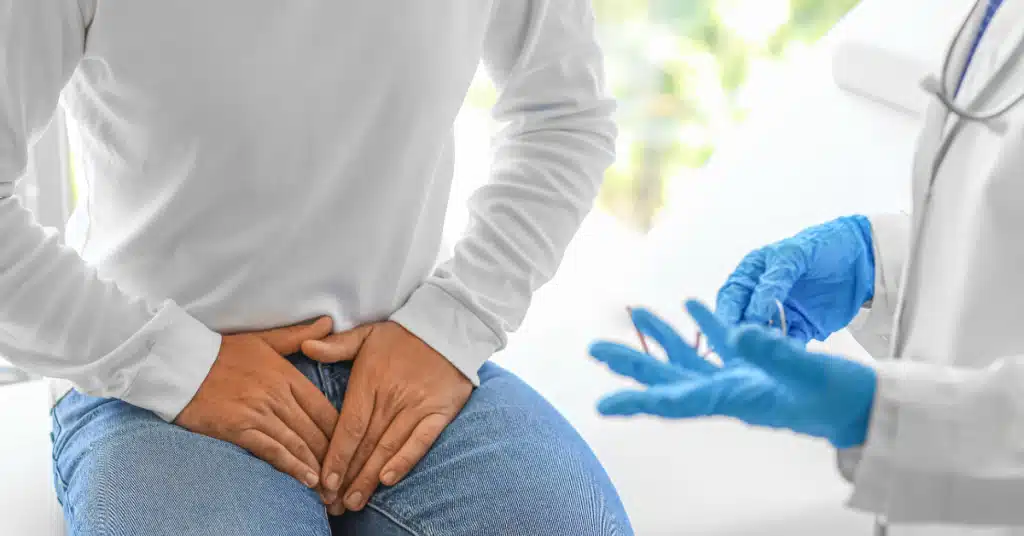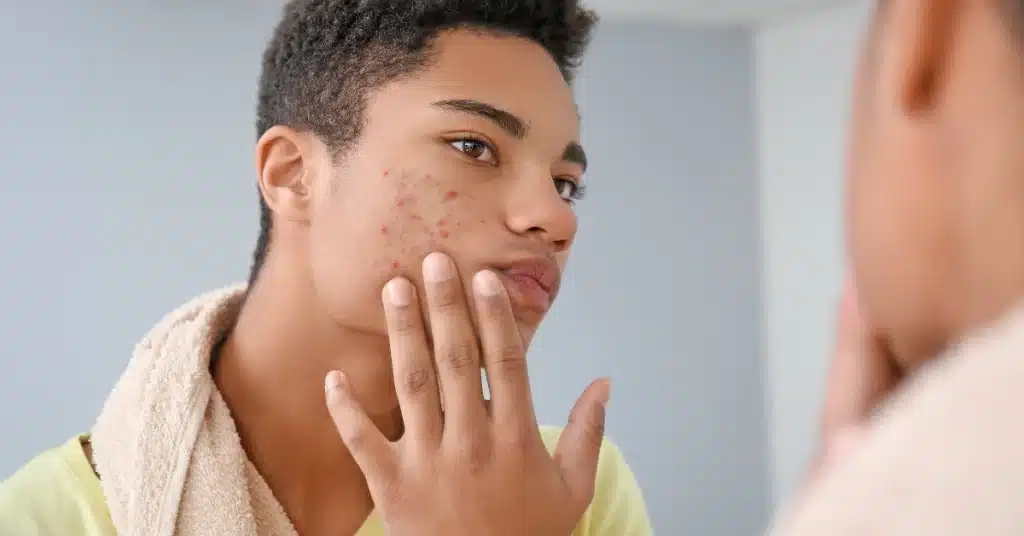Testosterone is a hormone typically produced by the testicles in men and assigned males at birth (AMAB).
It is responsible for sexual development and increasing sperm production in men.
Low testosterone is when testicles do not produce enough testosterone hormones for healthy functioning.
There are many misconceptions about low testosterone, its symptoms, and treatments.
You may wonder, “Is low testosterone bad?”
In this article, we’ll discuss low testosterone, its symptoms, and treatments in detail.
Symptoms of low testosterone
Low testosterone can cause symptoms such as low energy levels, mood swings, and Erectile Dysfunction (ED).
It may also influence sex drive and muscle and bone structure development.
As you age, you may experience low libido; on the other hand, people with low testosterone will likely have a more dramatic reduction.
It is a prevalent misconception that low testosterone levels are solely due to aging.
Medical conditions, lifestyle factors, and hormonal disorder can also affect testosterone production.
To understand if low testosterone is bad, you have first to understand the symptoms of low testosterone.
Some common symptoms of low testosterone are:
Low libido
According to one study, one of the most common symptoms of low testosterone is a drop in sexual desire.
Testosterone regulates sexual function and desire in both males and females.
If testosterone levels are low, it may result in low libido in both males and females.
Want to know more about the symptoms of low libido in men and women? Read our article: Symptoms of Low Libido In Men And Women
Reduced muscle mass
Testosterone is an important hormone for muscle mass maintenance.
One of the most noticeable symptoms of low testosterone is a loss of muscular mass.
Low testosterone levels can lead to decreased physical stamina and energy.
The body might not efficiently create and maintain muscle tissue, resulting in muscle mass loss and decreasing muscle mass over time.
Less muscle mass makes building muscles harder, leading to muscle shrinkage.
Low energy levels and mood swings
Individuals with low testosterone frequently report exhaustion and a lack of energy to do everyday tasks.
Low testosterone levels can lead to occasional Depression, mood swings, rage, and other undesirable emotions.
Erectile Dysfunction
 Source: Pixelshot
Source: PixelshotSome people might develop Erectile Dysfunction (ED) due to low testosterone.
Erectile Dysfunction is the inability to achieve or sustain an erection for sexual activity.
Low testosterone can cause ED by lowering libido.
It may also affect the ability of blood vessels in the penis to relax and allow blood flow, both of which are required for erections.
Low testosterone is distressing, but it is treatable. Doctors typically prescribe testosterone pills to treat low testosterone levels.
The effectiveness of these pills is limited and should be used cautiously.
Explore more about the various testosterone boosters for ED with our article:
Know Which is the Best Testosterone Booster for Erectile Dysfunction
Potential risk of low testosterone
Low testosterone can result in side effects like cardiovascular issues, decreased muscle mass, and bone density.
It can also lead to a low metabolism and disruptions in mental well-being.
It is not a life-threatening condition; it is treatable. Nevertheless, if left untreated, it can be harmful to your health.
Let’s discuss these side effects in detail:
Cardiovascular problems
Low testosterone levels may also affect blood pressure management and promote inflammation.
Several studies linked low testosterone levels to cardiovascular disorders, which includes an increased risk of heart disease.
Reduced muscle mass and bone density
Low testosterone causes weak bones and muscle loss, which increases the likelihood of suffering from fractures and osteoporosis.
It may affect physiological systems, disrupting protein synthesis stimulation.
This synthesis is required for our bodies’ muscle growth and maintenance.
Metabolic effects and mental well-being
Research states that low testosterone levels have been linked to metabolic syndrome, insulin resistance, and an increased risk of Type 2 Diabetes
Low testosterone levels can aggravate Depression and Anxiety as well.
To avoid unwanted repercussions, getting medical evaluation and therapy for low testosterone is essential.
Low testosterone levels can negatively impact the mechanisms which maintain smooth functioning and our overall well-being.
Want to know more about the mental health issues caused by low testosterone? Read our article: Can Low Testosterone Cause Anxiety? All You Need to Know
Treatment for low testosterone
 Source: pixelshot
Source: pixelshotTestosterone Replacement Therapy (TRT) is a treatment suggested for low testosterone.
Always consult with your doctor to know what is suitable for you before taking any medication or therapy.
TRT is a long-term treatment option. Your testosterone levels will fall if you discontinue medication.
This therapy may not be appropriate for you if you have:
- Sleep apnea
- Breast or prostate cancer
- Heart condition
- Planning to have children
Some of the side effects of TRT are:
- Acne
- Prostate enlargement
- Decreased sperm count
- Fluid retention
- Swollen ankles and feet
Here is your guide to the various treatment options for low testosterone, read our article: A Complete Guide on Low Testosterone Treatment
Summing up
Testosterone is a vital hormone, particularly in males, playing an important role in physiological functions and overall well-being.
Making informed decisions on low Testosterone necessitates discriminating between fact and fiction.
Many individuals wonder, “Is low testosterone bad?”
Although low testosterone is not naturally ‘bad’, it is important to identify symptoms and seek medical help.
There are many treatments available for low testosterone, such as Testosterone Replacement Therapy (TRT).
Always consult your doctor to discuss what treatment is suitable for you before starting any treatment.
Frequently Asked Question
What happens if your testosterone is too low?
Low testosterone levels can lead to fatigue, reduced muscle mass, low libido, mood changes, and even impact bone health.
It may potentially lead to Osteoporosis and affect overall well-being.
What is the impact of low testosterone in females?
Low testosterone in women can have negative effects. It may lead to decreased energy, libido, and muscle mass.
However, women naturally have lower testosterone levels compared to men, and it’s essential to maintain a healthy hormonal balance.
What are the treatment options available for low testosterone?
Treatment options for low testosterone include lifestyle changes like exercise and proper nutrition.
Hormone replacement therapy (HRT) using gels, patches, injections, or pellets can also be prescribed under medical supervision.
Addressing underlying medical conditions is essential for effective management.
Is it OK to live with low testosterone?
Living with low testosterone may impact well-being and health. It’s advisable to address it, as it can affect energy, muscle mass, mood, and other vital aspects of life.
Is having a high testosterone level dangerous?
While testosterone is essential for health, excessively high levels can lead to potential risks like mood swings, acne, and cardiovascular issues.
Maintaining a balanced testosterone level is crucial for overall well-being.
When referencing outside resources, GoodrxMedicine always provides full citations. To learn more about the measures we use to maintain the quality of our content, please review our Content Information Policy.











